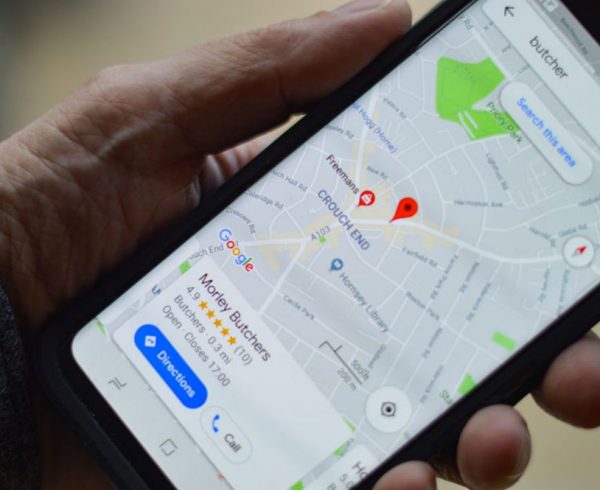Ages ago, I read an article by Rachel Klaver from Identify Marketing where she was interviewed for an article about bloggers and other social media influencers getting free stuff in return for endorsements to their followers. She’s also featured in this Stuff article. This piqued my interest as some bloggers I know get sent gifts/contra all the time.
But as personal stylist and fashion blogger, Caitlin Taylor from Chasing Cait says – free stuff is great but lipstick doesn’t pay the rent.
You can’t build a business on free stuff alone. Usually, these gifts are unsolicited and there is no agreement between the parties as to any sort of endorsement. So it’s then up to the individual blogger as to whether or not they post anything. Sometimes they do, sometimes they don’t. If they do it’s considered best practice to acknowledge within the post that it is a gifted product, otherwise it could be considered misleading.
Robecca Leyden, editor of Sans Pareil had this to say – It’s a difficult thing to navigate. As blogging and influencing is a relatively new business; it’s quite difficult to have rules and regulations in place. Especially since a lot of the stuff is on a global scale (being sent product from overseas/collaborating with international brands). There is the argument that certain perks which go along with corporate jobs – i.e – getting to wear designer clothes from a brand you might work for because they want you to be seen in it while at work. Employees don’t then get taxed on these clothes in my experience. One could argue it’s the same for talking about brands on a website – we need to try the product or we can’t truthfully talk about it.
Rachel’s article got me thinking, about the tax implications of such gifts. For me, I thought possibly these gifts were a form of barter in which case they would be considered as income and subject to income tax and GST. Almost certainly in the accounts of those companies sending the gifts I imagine they would be considered a taxable expense. However, it’s not really that straightforward and I had trouble finding any IRD info on this topic. My guess is that it’s not a very common scenario in NZ but I imagine it will become more and more so. Any money received is straightforward in that it’s taxable income, but what about when a company sends someone unsolicited gifts?
There are 3 scenarios that I’m curious about.
1. An unsolicited gift is received but the social media influencer chooses to take a picture of it and post about it. Is the value of the gift then considered taxable income? If so how would you determine the value for tax purposes?
2.There is an agreement between the giver and the receiver that in order to receive the product they must post a certain amount of times and perhaps even write something in particular. Is the value of the gift considered taxable income? If so how would you determine the value for tax purposes?
3.There is an agreement between the giver and the receiver that in exchange for posting about a product an agreed amount of times and perhaps even writing something specific, there will be remuneration of money and product. The money is definitely taxable income, but what about the product? The product may or may not be of any real value to the recipient, it might just be that it’s a necessary part of the agreement as in without it the post can’t be done. I have assumed no taxable income for an unsolicited gift which the social media influencer chooses not to post about.
I asked Don Hounsell, director of Hounsell Accounting Ltd. to give his opinion on these three points. (Remember this is just a quick opinion and not actual accounting advice).
1. DH – my thinking is that a gift is a gift irrespective of what the recipient does with it. So if it is a genuine gift, there is no issue with the recipient going ahead and making money from it. Note the word “genuine” here … a gift is something you receive from somebody who receives nothing in return.
2. DH – this doesn’t sound like a gift. It appears to be receiving goods in payment for a service. “giving” somebody something on the condition that they do something to benefit you is not a gift. So the value of the gift received would need to be the value of the products received.
3. DH – It really depends on the nature of the product and the amounts involved. I guess it would depend on whether the payment received was reasonable to cover the service provided, and what the relative value of the goods received were … for example, if the payment was $100 and goods received were $500, it would be hard to argue that the goods were not part of the payment, but if the value of the goods is trivial then it would be different. I agree that it may be that receiving and using the product is essential for the blogger – for example, if the product was cosmetics, the blogger would need to use them before they could write the blog, and once opened they couldn’t be returned. In this case, assuming the payment is a reasonable amount to cover the service, then I would accept the goods as free.
Similarities can perhaps be drawn between these gifts and koha. Traditionally a Maori practice, koha is generally not liable for income tax if it’s made voluntarily, with no benefit or advantage to the person or entity paying, and is not made in order for the recipient to have income. Koha can be thought of in the same vein as donations.
Please note that these are all just opinions and not intended as advice to build a business on. They are simply opinions. If you need any serious advice about your particular situation, I recommend you talk to your own accountant.
If you are in this situation yourself, or have anything useful to add please feel free to get in touch. It’s an interesting topic and I’m interested to hear how you manage this side of your business.








